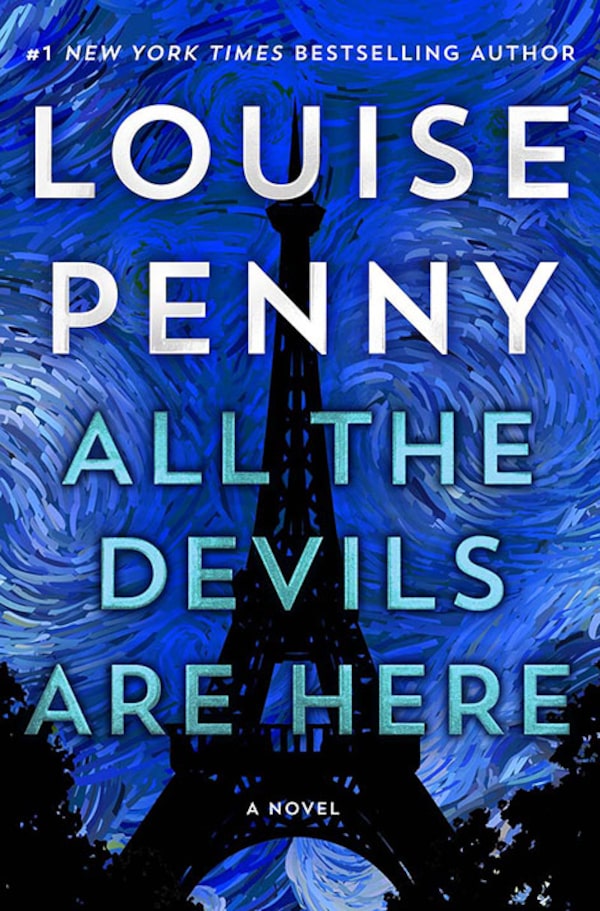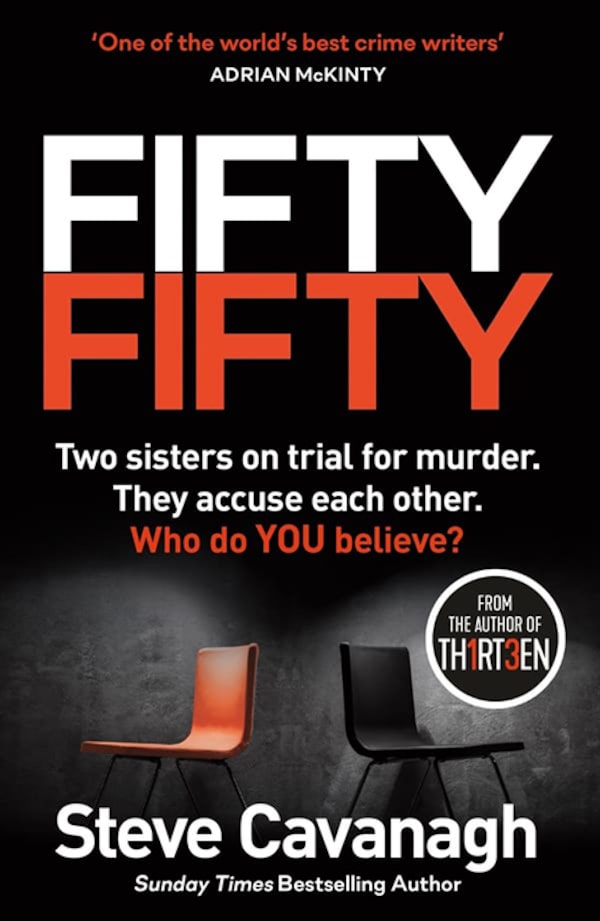Expand your mind and build your reading list with the Books newsletter. Sign up today.
The Unlocking Season, Gail Bowen (ECW, 349 pages)

handout
Can Joanne Kilbourn-Shreve really be 60? Gail Bowen does the unthinkable with her long-time heroine – she’s allowed her to age. She’s lived through a lot, raised her kids, become a granny, buried one husband and married another and, here she is, in book 19, ready to relax and head into her golden years. But Bowen – and readers – aren’t ready for that. So, in one of Bowen’s smartest novels yet, Joanne finds herself digging back into her own complicated history for answers about the death of a beloved friend.
It’s nearly spring in Saskatchewan and Joanne and her husband, Zack, are celebrating the season. She’s at work on a film script about the life and work of Douglas Ellard, the man who raised her and Desmond Love, her biological father. The script, to cover several episodes on television, gives Joanne a chance to learn a lot about events in her life that the families chose to keep secret. But when Roy Brodnitz, the other writer on the script, goes missing, she knows something is very wrong. Then Roy is found, terrified, unable to speak anything but gibberish. When he dies, it’s clear that there’s something that someone doesn’t want the world to know about the Ellard-Love family.
All The Devils Are Here, Louise Penny (St. Martin’s, 448 pages)

handout
What is a writer to do when he or she is tired of a series? Sir Arthur Conan Doyle killed Sherlock Holmes and then had to bring him back to life. Agatha Christie slipped from one series character to another and occasionally dabbled in spycraft. Louise Penny has wisely decided to let Chief Inspector Armand Gamache live but she’s relocated him, temporarily, to Paris and that’s an excellent choice because, just as Penny does with the charming Quebec village of Three Pines, she turns Paris into an essential part of the very engaging plotline of this superb book.
It’s a family affair. Armand and Reine-Marie are in Paris with their daughter, Annie, and son, Daniel. Armand’s old Sûreté sidekick, Jean-Guy Beauvoir, out of police work and now with a large engineering firm, is also there. Armand is also keen to spend time with his godfather, Stephen Horowitz, who is 93 and has been distant in recent years. What caused a crimp in a long and valued relationship? The family and Horowitz settle in for a fine French meal but no information comes. As Horowitz leaves the restaurant, he is hit by a delivery van. Witnesses are certain. It was no accident. The van deliberately aimed at the old man. Horowitz isn’t dead but he’s hanging on by a thread.
Gamache naturally meets with his friends and peers in on the Paris police. An investigation is instantly begun but then a body is found in Horowitz’s apartment under circumstances that make Gamache suspicious of the police. He sets out to uncover the crime on his own with Jean-Guy’s support. Clues turn up in strange places and Reine-Marie, a skilled archivist, turns out to be a detective on her own. As always, Penny builds the suspense but she does tuck in some bits from Three Pines for devoted fans and her view of Paris is grand. She takes us on a tour of the usual but also the interesting and strange. Read in a time of pandemic isolation, this is a wonderful escape.
Squeeze Me, Carl Hiaasen (Knopf Doubleday Canada, 352 pages)

handout
Carl Hiaasen is that rare bird, the native Floridian. Born and bred, he loves his state and has watched with horror as tourism destroys a genuine natural paradise. His response is his series of satirical novels lampooning everything from pro bass fishing to theme parks and, when on target, he’s savage. Squeeze Me is Hiaasen at his snarking best because his target is Palm Beach, a president with fake hair and assorted hangers on. The plot begins with a death; socialite Kiki Pew Fitzsimmons, a paying guest at the Winter White House (aka Casa Bellicosa), drifts out of a gala ball and is never seen again. The reason? A giant Burmese python, once some idiot’s pet, now a resident and hunter of local fauna.
Enter Angie Armstrong, critter catcher extraordinaire, and, as Hiaasen’s women tend to be, strong and smart. Angie is tasked with locating the reptile and incidentally covering up Kiki’s sad end. Hiaasen whips things into high gear as White House apparatchiks double down to protect the President from everything including his own stupidity and a First Lady happily squeezing her secret service man.
When all else fails, enter “Skink,” the ex-governor of Florida turned swamp man and ecowarrior. Skink is Hiaasen’s own answer to the damage done to his state by rampant capitalism. I laughed uproariously through this book. This is one not to be missed.
Murder in the Family, Jeff Blackstock (Viking, 332 pages)

handout
“I think that my father murdered my mother.” That’s the first line in this sad and scary memoir by retired Canadian civil servant Jeff Blackstock. Then for 300 pages, he records the story of his family and his gradual awareness that his mother didn’t die of a disease but by her husband’s hand.
The Blackstocks seem to be one of the blessed families of Imperial Canada. Born in Toronto to a branch of the Gooderham distillery family, George Blackstock was always headed for great things. He was a star student at Upper Canada College and already destined for public life. But in his final year of high school, he met pretty Carol Gray, a nice girl from a decent middle class family and, shortly after, when she turned up pregnant, he married her. He was 17. She was not quite 16.
They could have been doomed but, instead, the Blackstock family trust sent them to Guelph where George again excelled and, after the birth of son, Jeff, and daughter Julia, George was accepted in the Canadian diplomatic service and soon the couple headed for his first real posting in Argentina.
Jeff Blackstock was a child but he has stunningly reconstructed life in Buenos Aires in the diplomatic world of the 1950s. Carol Blackstock, pretty and amiable, loved life with its sophisticated parties, elegant homes, skilled servants. When, after two years, she began to suffer a strange illness, every medical attempt was made. No one could discover her bouts of debilitating vomiting. When it became clear that she was in need of specialist care, she was flown back to Canada to visit the Montreal Neurological Institute where she died shortly after her arrival. No cause was ever made public but private letter from the institute indicated large amounts of arsenic in her body. Pretty young Carol had been poisoned.
That is the first half of this book and no reader will want to put it down. From there, life in the Blackstock family changes drastically as George’s career moves forward and he remarries, and Jeff has a growing suspicion that something is wrong with the story he’s told about his mother’s death. His search for answers is solid writing but when he tries to convince the reader that the diplomatic service might have engaged in a cover up, things get a bit strained. But the confrontation with his father when it comes, it solid. This is a fine true crime book.
Fifty Fifty, Steve Cavanagh (Orion, 353 pages)

handout
“My father is dead. My sister killed him. She’s still in the house with the knife.”
Two calls with in two minutes to 911. From two sisters. One is lying but who? That’s the premise of this brilliant new legal thriller, part of Steve Cavanagh’s Eddie Flynn series. I hadn’t read anything else in the series but I’ve now ordered the other five. Fifty Fifty is one of the best books I’ve read this year.
The story opens as Flynn, a con-man grifter turned lawyer, awaits the verdict in a murder case. The jury is coming back after only 48 minutes. For Flynn, that’s not good. How could they decide a case so complicated, so devious, in such a short time. So it’s fifty fifty that they’ll convict his client.
From that opening we cut to the beginning when Sofia and Alexandra Avellino call 911 and accuse each other of murder. No question that their father is dead. He’s been stabbed 53 times. He is also the mayor of New York City and a multimillionaire. One of the sisters is lying. Flynn’s client is Sofia and he doesn’t represent people he believes are guilty.
To say any more is to give away a plot so good I’d never forgive myself but there are other bits to savour. Flynn’s friend Kate Brooks represents Alexandra and she’s just as convinced as he is that her client is innocent. Cavanagh piques the plot by having the guilty woman “she” narrate bits and drop clues. And there is a tragedy in Flynn’s own life that opens up some information about his past and a lot of clues that Kate Brooks will appear in more Flynn novels and even one of her own. Steve Cavanagh is a real discovery.